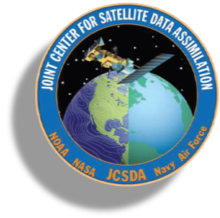Eric Lingerfelt
JEDI Software Engineer
Eric Lingerfelt joined the JCSDA in April 2021 as a Software Engineer working in the JEDI core team. As a contributor to the Research Repository for Data and Diagnostics (R2D2), he supports JEDI users by designing and implementing tools to manipulate, ingest, access, and archive model data and observations in near real-time. In addition, Eric assists the JEDI team with management and maintenance of centralized R2D2 databases on several HPC platforms and the Amazon cloud. He is also involved with development and enhancement of the Experiments and Workflows Orchestration Kit (EWOK) system and Solo software package capabilities.
Originally from a small mountain town in Tennessee between the Appalachian Trail and Dolly Parton’s birthplace in the Smoky Mountains, Eric received his undergraduate education at East Tennessee State University in mathematics and physics, where he conducted his senior year research at Kitt Peak National Observatory on the SARA 0.9-meter telescope near Tucson, Arizona. He received his Master of Science degree in physics with a concentration in astrophysics from the University of Tennessee in Knoxville and began his career as an Information Technology Specialist for UT’s Department of Physics and Astronomy in 2003. From 2003 to 2009, he worked at Oak Ridge National Laboratory developing the Computational Infrastructure for Nuclear Astrophysics (CINA) SaaS platform, which provides over 100 easy-to-use online tools for stellar explosive studies of novae, x-ray bursts, and supernovae. CINA continues to assist the astrophysics community to this day, with registered users from over 40 countries and almost 200 institutions.
In 2009, he accepted a position as a Technical Staff Member and Software Engineer at ORNL, where he led the design and implementation of several award-winning computational infrastructures in the areas of nuclear astrophysics, nanoscale materials science, Big Bang cosmology, supernovae modeling, environmental science, and isotope sales and distribution. These n-tier systems provided end-users with highly interactive, intuitive user interfaces enabling scientific data analysis, management, modeling, collaboration, and visualization in combination with secure web services, cloud resources, petabyte-scale storage, and several HPC platforms including Jaguar and Titan at the OLCF and Edison, Hopper, and Cori at NERSC.
In 2017, Eric joined UCAR as EarthCube Technical Officer and Senior Software Engineer, where he led the design of technical architectures for the NSF EarthCube program and the implementation of the GeoCODES cyberinfrastructure platform enabling Earth science data providers and consumers to register, search, discover, and access resources from dozens of NSF data repositories using modern web standard methods and technologies. It was during this time that he founded Pandia Software (https://pandiasoftware.com) to continue his work developing and enhancing software platforms for US Department of Energy astrophysics initiatives.
Eric currently resides in Fort Collins, Colorado. He enjoys playing drums, guitar, and bass, as well as disc golf, hiking, biking, fishing, archery, cross country skiiing, kayaking Horsetooth Reservoir, and tubing the Cache la Poudre River.

